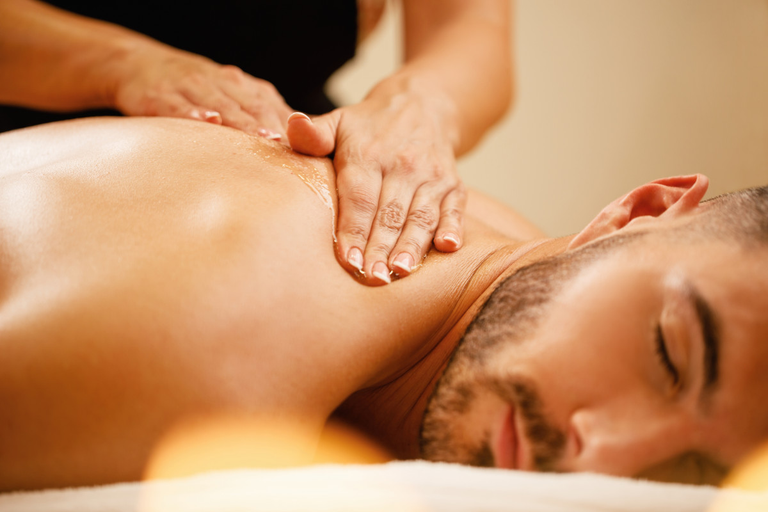How Student Knowledge Shapes Their Response to Musculoskeletal Pain

Photo by massagedubai from PxHere
One of the most important lessons I have learnt during my university years is how knowledge shapes the way we perceive things around us and how that perception influences our actions in real life.
Why is knowledge a concern? Recently, as part of my research on ’’Knowledge of Musculoskeletal Pain and Health-Seeking Habits Among Undergraduates. ” I observed that many students who are not familiar with what musculoskeletal (MSK) pain is tend to ignore their symptoms or self-treat at home instead of seeking professional help. Some of their reasons will blow you off.
Before moving on, let us acknowledge that musculoskeletal pain affects the joints, muscles, bones, ligaments, tendons, or other connective tissue of the body. It is prevalent among students who are seen as a unique population. And due to the stress and physical demands of academic life while studying, they tend to develop musculoskeletal pain more often. Pain in the neck, shoulder pain and low back pain are common among undergraduates.
For example, a study I reviewed showed that students tend to get pain from prolonged sitting while reading; inappropriate or awkward postures during lectures; and using mobile devices or laptops for a very long time contribute significantly to this pain. This is true because I actually experienced this during my intense preparation for my 2nd physiotherapy exams.
I remember how I did marathon study with my classmates those days. Yeah, we did read throughout the whole night non-stop. But in the morning, we would be feeling pains all over our bodies.

https://www.pexels.com/photo/pensive-female-student-reading-book-in-light-room-7034469/
The shocking part of it is that we would pretend as if the pain was nothing, and we just ignored it. We were not bothered because we marked our exam as the most important thing facing us, then the pain. So we managed it ourselves.
One thing about pain is that it is a unique experience, but the way we understand and respond to it, especially as students, matters a lot, and it can shape not just our quality of life but also our willingness and approach to seeking healthcare.
Because we didn't understand the implications of ignoring pain, we were reluctant to seek professional treatment.
When I asked one of my roommates how he dealt with the pain after he complained to me about challenges he faced due to low back pain, this guy told me that he wasn't ready to do anything about it. That the pain is part of the struggle here as an undergraduate, and he must endure it. Really? And this is exactly the mindset of some other students, especially those who are not in the health or medical fields. You can now see that the perception of pain, what it means, when it matters and how it is treated, all impacts our actions.
Back to my research, I distributed 15 copies of my questionnaire among randomly selected students to test the questions and get feedback. I noticed that in the section on health-seeking habits, many students reported resting, self-medication, praying, or simply doing nothing as what they do when they feel musculoskeletal pain.
When I asked them if they knew professionals who could help, some said yes, but others said no. One of the students told me the reason why he did not seek proper treatment was due to his busy schedule and academic demands, so instead, he looked for advice online.
Nowadays, almost every student does seek medical advice online since everyone owns a smartphone or computer, and, between, who doesn't know how to reach the Internet for almost any information? Many students see the Internet as the simplest, most convenient and most confidential place to ask questions related to their problems, especially when they're not ready or feel embarrassed to let anyone else know about their symptoms.
But is self-diagnosing online the best approach? Not really!! And why not? The internet has a wide amount of medical information, but it cannot provide personalised diagnosis or treatment based on the individual evaluation, which is where a medical professional comes in. Hence, this can lead to misdiagnosis and wrong interpretation of symptoms.
Some students even develop “cyberchondria”, a condition where an individual gets excessive anxiety and worry from online searches for health information. This results in an exaggerated awareness of symptoms, which worsens their health worries.
Apart from busy schedules and online searching, other factors like culture and social factors influence how students seek medical intervention. Take, for instance, the student who chose prayer as an option for her pain management; it shows how cultural values and family beliefs can delay or discourage professional intervention.
Another one is peer influence. Stories and advice from students or friends can promote misconceptions or encourage the best health-seeking habits.
All of these factors shape how students seek medical care. At times, students only seek help when pain interferes with daily life, sometimes after self-treating with the wrong medications or remedies on their own.
In summary, it is important to note that our knowledge profoundly influences our actions. Many unnecessary pains or conditions can be improved or avoided if we have the proper knowledge about the situation and seek adequate health care on time.
I have seen that awareness campaigns by physiotherapy and medical students make a difference. When a student understands that pain is information, not just an annoyance, the student is less likely to keep silent. Rather, he will speak up and seek help.
So do not let pain be your silent companion. Even small pain can be a setback if you allow it to linger. With the right knowledge, we can create a healthier habit that will last a lifetime.
Have you experienced musculoskeletal pain during your studies? How do you manage it? Share your story below
References
Musculoskeletal Pain
Internet-Based Health Information–Seeking Behavior of Students Aged 12 to 14 Years: Mixed Methods Study
Risks of Using the Internet to Self-Diagnose
Cyberchrondria: Anxiety from Online Health Search. Nature

Dear @jsalvage !
James!
I have never experienced musculoskeletal pain!
By the way, Are your name James Kossy?
Yes, that is name. Where did you see that ? 😄
Oh, I see.
By the way, are you now on Facebook? Discord or any social media?
I'm not on Facebook, Discord or any social media!
Thanks for your contribution to the STEMsocial community. Feel free to join us on discord to get to know the rest of us!
Please consider delegating to the @stemsocial account (85% of the curation rewards are returned).
Consider setting @stemsocial as a beneficiary of this post's rewards if you would like to support the community and contribute to its mission of promoting science and education on Hive.